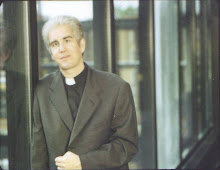On February 19, 2009, the Task Force for ELCA Studies on Sexuality released the proposed social statement on human sexuality, “Human Sexuality: Gift and Trust,” and the “Report and Recommendation on Ministry Policies.” You can find both documents at http://www.elca.org/What-We-Believe/Social-Issues/Social-Statements-in-Process/JTF-Human-Sexuality.aspx. The ELCA Church Council is expected to transmit its recommendations on these statements to the 2009 Churchwide Assembly, August 17-23, 2009, in Minneapolis. The assembly will consider both the recommended proposed social statement with impending resolutions and the ministry policy recommendation. I surely believe that the Holy Spirit may work so clearly and powerfully in the churchwide assembly that observers later say, “Now the whole group of those who believed were of one heart and soul” (Acts 4:32). However, I suspect that, regardless of how the Spirit works and what the churchwide assembly decides, some, whether in the assembly, the ELCA, the greater church, or in society, will be disappointed, even angry. And I suspect some in our congregations will be struggling as well.
Preachers might feel compelled to preach, and congregants might demand to hear, a sermon on human sexuality, and particularly the rostered leadership of persons living in committed same sex relationships, on Sundays, August 16 and 23. I’d like to propose an alternative strategy. The author of Ecclesiastes reminds us that there is “a time to keep silence, and a time to speak” (Ecclesiastes 3:7). I propose that preachers and congregations should decide that the Sundays before and after the churchwide assembly are not times to speak to the issue of human sexuality, except for praying for the churchwide assembly on August 16 and the whole church on August 23. Sermons on these Sundays ought to be a bold, clear and unambiguous proclamation of the gospel, to testify that, as the ELCA Constitution says, “the Gospel, recorded in the Holy Scriptures and confessed in the ecumenical creeds and Lutheran confessional writings, [is] the power of God to create and sustain the Church for God's mission in the world.”
Even as they decide not to preach on the issue of human sexuality on the Sundays that bookend the churchwide assembly, I propose that preachers and congregations decide, before anything else is decided, when they are going to preach about this issue and discuss it as faith communities. One possibility for preaching such a sermon is Sunday, September 27. As Ecclesiastes reminds us, while there is “a time to keep silence,” there is also “a time to speak.” Michael Fick, who authored this series of preaching helps, observes the readings for this Sunday (Numbers 11:4-6, 10-16, 24-29; James 5:13-20; and Mark 9:38-50) speak to the structure and authority of leadership in the church, and our desire to know with certainty who has the authority to do what and why. These readings can help us to wrestle with the question of how we can achieve some common understanding of how, and by whom, ministry is carried out. Pastor Fick observes that the priesthood of all believers is prefigured in these readings. Moses longs for all the people to be seized by the spirit with spiritual gifts to share, and Jesus warns in the most graphic terms the danger of placing barriers between people and the works they would do in his name. At the same time, these readings affirm the variety of gifts carried out by those identified by the community at large. Eldad and Medad’s perfectly valid ministry did not negate the role of the called seventy in leadership. Nor did the acts performed in Jesus’s name replace the calling of the twelve in the ministry of accompaniment in which they serve. James reminds us that different gifts produce different kinds of ministry.
Setting “a time to keep silence” and “a time to speak” well in advance of the churchwide assembly proclaims that the gospel rather than any single issue defines the church. It gives people the opportunity, even obligation, to pray and listen before they respond and speak. Finally, a sermon that speaks to the issues of human sexuality and rostered leadership can grow from the appointed Scripture readings, rather than being imposed upon them.
Remember that, no matter how effective they are, sermons alone will neither satisfy people nor settle issues. Preaching works in partnership with worship, fellowship, Bible study, relationships, outreach and social justice as people are formed by and witness to the gospel. Congregations need opportunities to share, process, and respond.
Thursday, March 12, 2009
Subscribe to:
Post Comments (Atom)

No comments:
Post a Comment